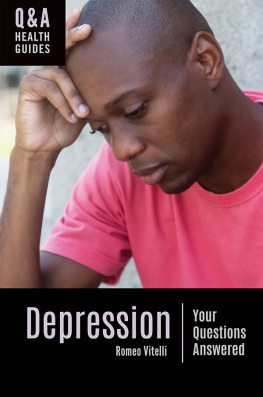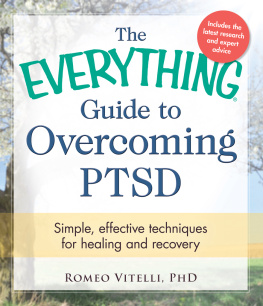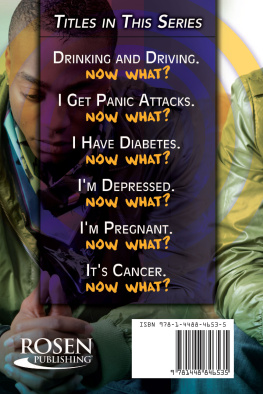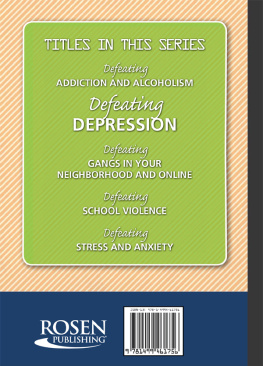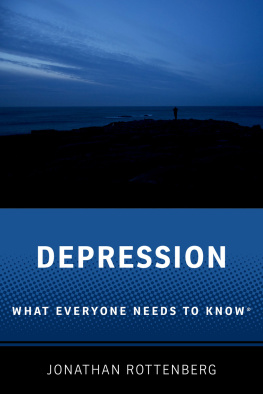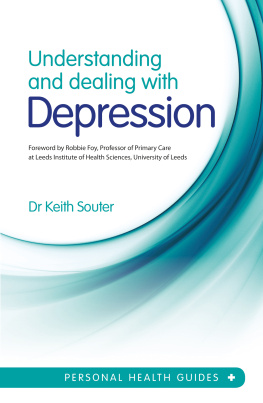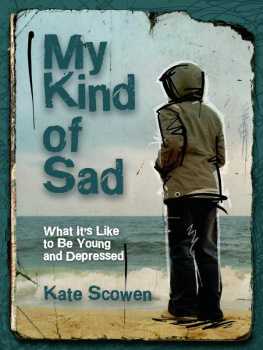Depression
Recent Titles in Q&A Health Guides
Living Green: Your Questions Answered
Amy Hackney Blackwell
Sexually Transmitted Diseases: Your Questions Answered
Paul Quinn
Mindfulness and Meditation: Your Questions Answered
Blaise Aguirre
Anxiety and Panic Disorders: Your Questions Answered
Daniel Zwillenberg
Substance Abuse: Your Questions Answered
Romeo Vitelli
Eating Disorders: Your Questions Answered
Justine J. Reel
Food Allergies and Sensitivities: Your Questions Answered
Alice C. Richer
Obesity: Your Questions Answered
Christine L. B. Selby
Birth Control: Your Questions Answered
Paul Quinn
Therapy and Counseling: Your Questions Answered
Christine L. B. Selby
Depression
Your Questions Answered
Romeo Vitelli
Q&A Health Guides

Copyright 2019 by ABC-CLIO, LLC
All rights reserved. No part of this publication may be reproduced, stored in a retrieval system, or transmitted, in any form or by any means, electronic, mechanical, photocopying, recording, or otherwise, except for the inclusion of brief quotations in a review, without prior permission in writing from the publisher.
Library of Congress Cataloging in Publication Control Number: 2019941511
ISBN: 978-1-4408-6600-5 (print)
978-1-4408-6601-2 (ebook)
23 22 21 20 191 2 3 4 5
This book is also available as an eBook.
Greenwood
An Imprint of ABC-CLIO, LLC
ABC-CLIO, LLC
147 Castilian Drive
Santa Barbara, California 93117
www.abc-clio.com
This book is printed on acid-free paper 
Manufactured in the United States of America
This book is dedicated to Dr. Norman S. Endler whose own holiday of darkness helped inspire this book. It is also dedicated to all of my clients dealing with depression, and I thank you for the insights you have provided. May this book help others find a way to come to terms with their depression and get on with their lives.

Contents

All of us have questions about our health. Is this normal? Should I be doing something differently? Whom should I talk to about my concerns? And our modern world is full of answers. Thanks to the Internet, theres a wealth of information at our fingertips, from forums where people can share their personal experiences to Wikipedia articles to the full text of medical studies. But finding the right information can be an intimidating and difficult tasksome sources are written at too high a level, others have been oversimplified, while still others are heavily biased or simply inaccurate.
Q&A Health Guides address the needs of readers who want accurate, concise answers to their health questions, authored by reputable and objective experts, and written in clear and easy-to-understand language. This series focuses on the topics that matter most to young adult readers, including various aspects of physical and emotional well-being as well as other components of a healthy lifestyle. These guides will also serve as a valuable tool for parents, school counselors, and others who may need to answer teens health questions.
All books in the series follow the same format to make finding information quick and easy. Each volume begins with an essay on health literacy and why it is so important when it comes to gathering and evaluating health information. Next, the top five myths and misconceptions that surround the topic are dispelled. The heart of each guide is a collection of questions and answers, organized thematically. A selection of five case studies provides real-world examples to illuminate key concepts. Rounding out each volume are a directory of resources, a glossary, and an index.
It is our hope that the books in this series will not only provide valuable information but will also help guide readers toward a lifetime of healthy decision-making.

I would like to thank the various researchers and therapists whose efforts have helped make this book possible. Thanks also go to Maxine Taylor of ABC-CLIO and their excellent support staff as well as those colleagues of mine who were kind enough to review sections of this book and provide helpful suggestions on how it could be improved.

Depression is like a heaviness that you cant ever escape. It crushes down on you, making even the smallest things like tying your shoes or chewing on toast seem like a twenty-mile hike uphill. Depression is a part of you; its in your bones and your blood.
Jasmine Warga
If there is any mental health issue that can be said to be universal, its depression. Among the famous people who dealt with this crippling disease were such luminaries as Edgar Allen Poe, Winston Churchill, Abraham Lincoln, and Virginia Woolf, to name just a few. But depression has been found in people of all ages and cultures and in just about every era in human history. For that matter, it may predate human history considering that depressive symptoms have been observed in numerous nonhuman species as well.
We all get depressed, at least once in a while, though for most people, those blue moods pass quickly enough. But not everyone is so lucky. In the United States alone, mood disorders are the most common reason for children from one to seventeen years of age to be hospitalized, and more than fifty thousand Medicaid patients are readmitted to hospital for depression each year. And these grim statistics are in line with what is being reported in most other industrialized countries as well.
Unfortunately, getting accurate statistics is often impossible in many countries because the stigma attached to most forms of mental illness, including depression, often encourages people to suffer in silence. In most developing nations, psychiatrists are in extremely short supply, and psychiatric help is simply not available for many patients courageous enough to ask for it. Even in supposedly advanced nations like the United States, the long waiting lists for proper treatment can lead to depressed people having to wait months to get help, even if its just in the form of medication.
Much of the stigma surrounding depression stems from a basic misunderstanding of what depression actually is. Even for people with mild depression, the failure to just get over it often leads to feelings of guilt or shame due to not being able to handle the symptoms on their own. And for the ones dealing with more severe symptoms, getting help means months, or even years, of experimentation to find the right treatment. For that matter, horrifying stories of depression being treated through exorcisms or spurious local remedies, which often do more harm than good, are disturbingly common, even in countries where better options exist.

